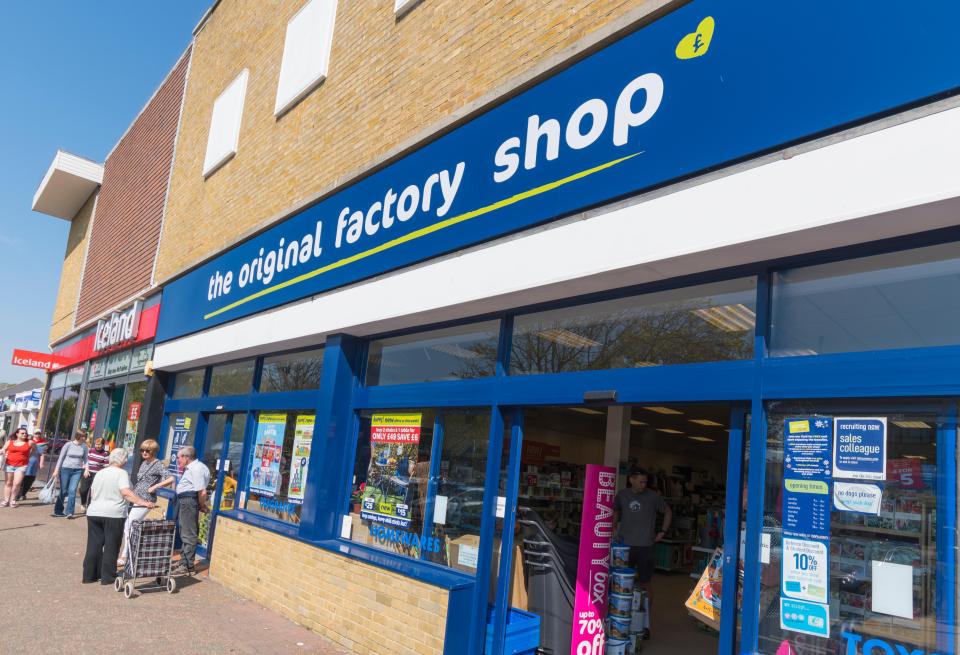THE future of one of Britain’s biggest high-street discount chains remains uncertain after failing to find a buyer.
The Original Factory Shop (TOFS), a beloved haunt for bargain-savvy Brits, is teetering on the edge of uncertainty.
Despite its popularity, the discount retailer is struggling to secure a buyer, raising concerns about its future on the high street.
It’s understood that Teneo, a strategic advisory firm, has been called in to explore all options, including another attempt to flog the chain.
A spokesperson for the retailer said: “The Original Factory Shop has been offering communities a great range of products at unbeatable value since 1969.
“Like many retailers, the company continually reviews its outlook and is exploring a range of strategic options.
“The business continues to trade as normal and is expected to perform well over the busy Christmas period.”
The brand currently trades from 187 stores across the UK.
This isn’t the first time TOFS has been on the market.
Last year, current owners Duke Street Capital, who’ve been at the helm since 2007, tried to sell up through Deloitte, but no deal was struck.
Back in 2013, the chain was valued at over £100 million, but recent financial results show a dip in both revenue and profits, ending the year to March 2023 with a pre-tax loss.
While discount retailers like B&M and Home Bargains are booming thanks to the cost of living crisis, TOFS seems to be struggling to keep up.
Why are retailers closing shops?
EMPTY shops have become an eyesore on many British high streets and are often symbolic of a town centre’s decline.
The Sun’s business editor Ashley Armstrong explains why so many retailers are shutting their doors.
In many cases, retailers are shutting stores because they are no longer the money-makers they once were because of the rise of online shopping.
Falling store sales and rising staff costs have made it even more expensive for shops to stay open. In some cases, retailers are shutting a store and reopening a new shop at the other end of a high street to reflect how a town has changed.
The problem is that when a big shop closes, footfall falls across the local high street, which puts more shops at risk of closing.
Retail parks are increasingly popular with shoppers, who want to be able to get easy, free parking at a time when local councils have hiked parking charges in towns.
Many retailers including Next and Marks & Spencer have been shutting stores on the high street and taking bigger stores in better-performing retail parks instead.
Boss Stuart Machin recently said that when it relocated a tired store in Chesterfield to a new big store in a retail park half a mile away, its sales in the area rose by 103 per cent.
In some cases, stores have been shut when a retailer goes bust, as in the case of Wilko, Debenhams Topshop, Dorothy Perkins and Paperchase to name a few.
What’s increasingly common is when a chain goes bust a rival retailer or private equity firm snaps up the intellectual property rights so they can own the brand and sell it online.
They may go on to open a handful of stores if there is customer demand, but there are rarely ever as many stores or in the same places.
